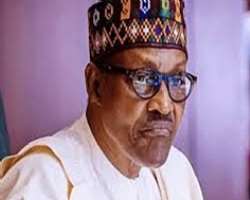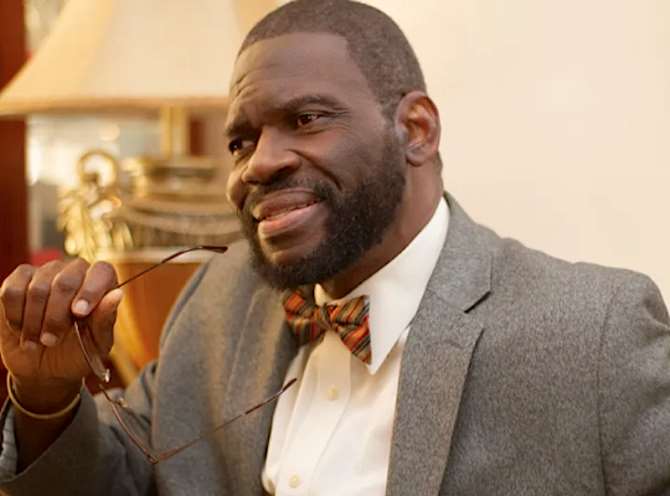Unity Triumphs Division: Peter Obi's Outreach—Symbolic Or Not—A Powerful Lesson For Bashir Ahmad And Nigeria's Unity

In the intricate web of Nigerian politics, where every move is analyzed and its implications magnified, a recent event has sparked a storm of controversy and debate. On March 19, 2024, Sahara Reporter showed an article titled "Buhari’s Ex-Aide, Others Knock Peter Obi For Breaking Ramadan Fast With Muslims In Nasarawa, Call It ‘Eye Service’", thrusting into the spotlight Peter Obi's recent outreach to the Muslim community during Ramadan.
As the discussion deepens, it's essential to delve into the motivations behind Peter Obi's actions. While some, like Bashir Ahmad, quickly dismiss Obi's gestures as mere "eye service", others see it as a strategic political move—a way to underscore Obi's dedication to bridging societal divides, especially along religious lines. From my perspective, this narrative goes beyond the individuals involved; it touches upon broader themes of democracy and the urgent need for unity in Nigeria's diverse landscape. As we navigate these complexities, it becomes clear that actions like Obi's serve as potent reminders of the transformative potential of inclusivity and dialogue in building a more cohesive society. It's worth noting that I have no personal connection with either Obi or Ahmad. My primary aim here is to highlight the importance of democracy, rights, and unity.
Peter Obi's visit to the Maraba-Nyanya International Market Central Mosque wasn't solely a strategic move for political gain, even if there were underlying political considerations involved. Instead, it was a genuine display of solidarity and respect, particularly poignant during the Ramadan season—a time when the essence of compassion, empathy, and unity is deeply revered.
Understanding Peter Obi's motivations is essential. While some doubt his sincerity, others see his actions as strategic steps to promote unity across religious, ethnic, and regional divides. This issue goes beyond Obi and Ahmad, touching on broader themes like democracy and the urgent need for unity in Nigeria. Acts like Obi's serve as reminders of the importance of inclusivity and dialogue in building a stronger society. It's important to note that I have no personal connections to either Obi or Ahmad. My main goal is to highlight the significance of democracy, rights, and unity.
Bashir Ahmad asserts that despite spending eight years as governor, Peter Obi didn't participate in breaking fast with Muslims in Anambra. One may question the veracity of this claim. Ahmad then suggests that Obi's current actions are driven by politics, particularly with an eye on the 2027 elections. However, Ahmad should recognize that political maneuvers, including symbolic gestures, hold significance. Even if Obi's past engagements with the Muslim community were not widely known, his recent participation during Ramadan signifies a strategic move. It's more than symbolism—it's a calculated effort to garner political favor and foster goodwill, acknowledging the intricate dynamics of politics that extend beyond surface appearances.
Although Ahmad may view Obi's actions as political posturing, I perceive them as shrewd maneuvers within the complex fabric of Nigerian politics. Undoubtedly, Obi harbors ambitions for the presidential seat in 2027—an aspiration well within his rights. Yet, should we fault him for such aspirations? In a landscape marred by ethnic, religious, and regional fault lines, Obi's emphasis on unity emerges as a beacon of hope amidst discord.
While Ahmad critiques, Obi persists in navigating the political terrain with finesse—both in his literal and metaphorical feasting. For aspiring politicians, there's wisdom in emulating Obi's tactics. After all, democracy mandates the exercise of rights, even if it entails engaging in symbolic gestures like sharing samosas to garner support. In the grand tapestry of Nigerian politics, it's the strategic thinkers like Obi who carve paths toward unity and progress, regardless of the critics' commentary.
At the core of this debate lies the question of political strategy. For Peter Obi, a seasoned political figure with ambitions that transcend regional boundaries, engaging with diverse communities isn't simply a tactical move; it's a strategic necessity. In a nation as ethnically and religiously diverse as Nigeria, fostering unity and inclusivity isn't just a political talking point – it's a fundamental requirement for effective governance.
Yet, amidst these discussions, it's impossible to ignore the irony of Ahmad's criticisms. As a representative of the Northern and Muslim communities, Ahmad's dismissal of Obi's outreachunderscores a troubling trend of divisiveness within Nigerian politics. Instead of embracing efforts to bridge divides and foster unity, Ahmad's rhetoric serves to exacerbate tensions and deepen societal rifts.
In a nation grappling with profound challenges of cohesion and unity, leaders like Peter Obi exemplify the type of inclusive leadership that Nigeria desperately needs. While Ahmad and his ilk may seek to sow seeds of discord, it's imperative that we rally behind efforts to build a more unified and inclusive society. After all, in the face of adversity, it's unity, not division, that will pave the way forward for Nigeria's future.
Furthermore, it's imperative to acknowledge and preserve the fundamental right of individuals to partake in political outreach and community engagement throughout Nigeria, regardless of geographical distance, tribal affiliation, religious beliefs, or regional origin. Although our democracy may encounter obstacles in its implementation, it remains firmly entrenched in legislation, affording each citizen the chance to engage in the political sphere irrespective of their religious or ethnic identity.
In a diverse nation like Nigeria, unity is a vital ingredient for progress and development. By embracing our differences and promoting inclusivity, we can build a stronger and more cohesive society. It's essential for leaders to lead by example, promoting dialogue and mutual respect among all segments of society.
Even if we assume that Peter Obi's actions are politically motivated, it's worth noting that he is still crossing over and demonstrating a commitment to unity. Despite the political calculations, his outreach efforts serve to bridge divides and promote inclusivity. This underscores the importance of putting aside differences and working together for the greater good of our nation.
I wonder how Ahmad would interpret Governor Bala Abdulkadir Mohammed's visit to Bishop Hilary NanmanDechelem, the Bishop of Bauchi Catholic Diocese, a Christian leader. Ahmad might speculate that the governor is aiming to secure support from Christians for future elections, reminiscent of how he criticized Peter Obi’s Mosque visits during Ramadan. Ahmad may question whether the governor's gesture is politically driven or genuinely sincere, echoing his scrutiny of Obi's actions. It's crucial to acknowledge that the behaviors of leaders like the governor or Obi, whether symbolic or real, could greatly influence Nigeria's journey towards authentic unity and harmony.
Perhaps Ahmad could learn from Obi's example by actively involving himself in communities in the East during major Christian holidays. By immersing himself in local customs, sharing meals, and establishing authentic connections at the grassroots level, Ahmad could contribute significantly to building bridges and promoting inclusivity within Nigerian society.
During this sacred time of Ramadan, let us remember the importance of refraining from judgment and embracing the spirit of forgiveness and understanding. As Muslims around the world observe this holy month, the essence of Ramadan lies in fostering compassion, unity, and mutual respect among all individuals, regardless of background or belief.
Fundamentally, true democracy extends beyond the exercise of rights; it encompasses the fulfillment of responsibilities. This entails listening to diverse perspectives, continuously learning, and engaging with all segments of society, irrespective of religious or ethnic differences. Embracing this responsibility is essential for Ahmad and others to play a pivotal role in fostering a more cohesive and harmonious Nigeria.
As the conversation delving into Peter Obi's visit to the Maraba-Nyanya International Market Central Mosque unfolds, it presents us with a profound opportunity to delve into the essence of Nigerian politics. Beyond mere electoral calculations and partisan interests, it's imperative to recognize politics as a medium for nurturing relationships, fostering dialogue, and advancing a collective vision of progress and prosperity for all Nigerians.
Peter Obi's recent outreach deserves commendation not merely as a political tactic but as a genuine testament to the spirit of inclusivity and unity intrinsic to Nigerian democracy. By extending his hand to the Muslim community during Ramadan, Obi showcased a sincere dedication to bridging religious divides and nurturing mutual understanding—an act that resonates profoundly in a nation too often marred by unnecessary divisions.
However, amidst the discourse, the criticisms voiced by Bashir Ahmad serve as a poignant reminder of the obstacles we confront in surmounting these divisions. Yet, there exists optimism in Ahmad's willingness to learn and evolve. His path towards embracing inclusivity and empathy could potentially serve as a blueprint for fostering unity across Nigeria's fragmented societal landscape.
In a nation grappling with divisiveness, Peter Obi's recent outreach serves as a beacon of hope, challenging us to transcend barriers and celebrate our diversity. Yet, it's not just Obi who needs to heed this call; leaders across the spectrum, from past presidents to local officials, must take note. Nigeria's future hinges on our ability to foster unity amidst diversity.
It's imperative for all Nigerians, irrespective of their backgrounds or beliefs, to recognize the transformative power of dialogue, empathy, and mutual respect. As we navigate the complexities of our society, let's draw inspiration from Obi's actions and strive for a future where unity prevails over division.
In essence, the essence of politics transcends the pursuit of power or personal gain; it lies in the collective endeavor to construct a more inclusive, harmonious, and prosperous Nigeria for the generations to come.
Even if Peter Obi's actions are viewed through the lens of political strategy, they still serve as examples of good politics. The poignant image of him sitting down and sharing meals with children and other community members resonates deeply, illustrating how even in the realm of politics, genuine engagement and empathy can foster unity and bridge societal divides.
much.
Prof. John Egbeazien Oshodi
Professor John Egbeazien Oshodi, born in Uromi, Edo State, Nigeria, is an American-based police and prison scientist, forensic psychologist, public policy psychologist, and legal psychologist. He’s a government advisor on forensic-clinical psychological services in the USA and the founder of the Dr. John Egbeazien Oshodi Foundation for Psychological Health. With a significant role in introducing forensic psychology to Nigeria through N.U.C. and Nasarawa State University, he’s also a former Secretary-General of the Nigeria Psychological Association. He’s taught at esteemed institutions like Florida Memorial University, Florida International University, Nova Southeastern University, and more, and is currently an online faculty member at Weldios University, Nexus International University, and Walden University. [email protected]

